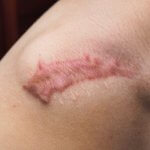Last week changes to the newborn screening programme were announced. Babies will now be screened for 9 illnesses instead of the previous 5 illnesses.
The new-born screening programme involves taking blood from a baby in their first few weeks of life; this is done through the heel-prick test, also known as the Guthrie test. By screening babies for these illnesses, they can receive treatment much more quickly for illnesses which can have devastating effects if left undiagnosed and untreated.
The Guthrie test previously screened babies for only 5 illnesses which are:
• Phenylketonuria (PKU),
• Congenital hypothyroidism (CHT),
• Medium-chain acyl-CoA dehydrogenase deficiency (MCADD).
The test now includes the following 4 illnesses:
• Maple syrup urine disease
• Homocystinuria
• Glutaric acidaemia type 1
• Isovaleric acidaemia
This week we will be learning more about Maple Syrup Urine Disease (MSUD) and Isovaleric Acidaemia (IVA). Both MSUD and IVA are genetic conditions. This means if both parents are a carrier of the gene each baby they have together will have a 25% chance of being born with the condition, 50% chance of being a carrier for the condition, and a 25% chance of being unaffected – thankfully both of these conditions are incredibly rare.
MSUD and IVA are also both metabolic conditions. A metabolic disease is a condition where the body is unable to break down the food we eat to turn it into fuel. Enzymes are responsible for breaking down specific substances; in metabolic conditions this process is not effective of breaking down certain substances. This can result in a build-up of toxins which can be incredibly harmful to the body as the body has no way to eliminate these toxins.
Over the course of the week we will be looking at Maple Syrup Urine Disease and Isovaleric Acidaemia in more detail in order to raise awareness of both of these rare conditions.








